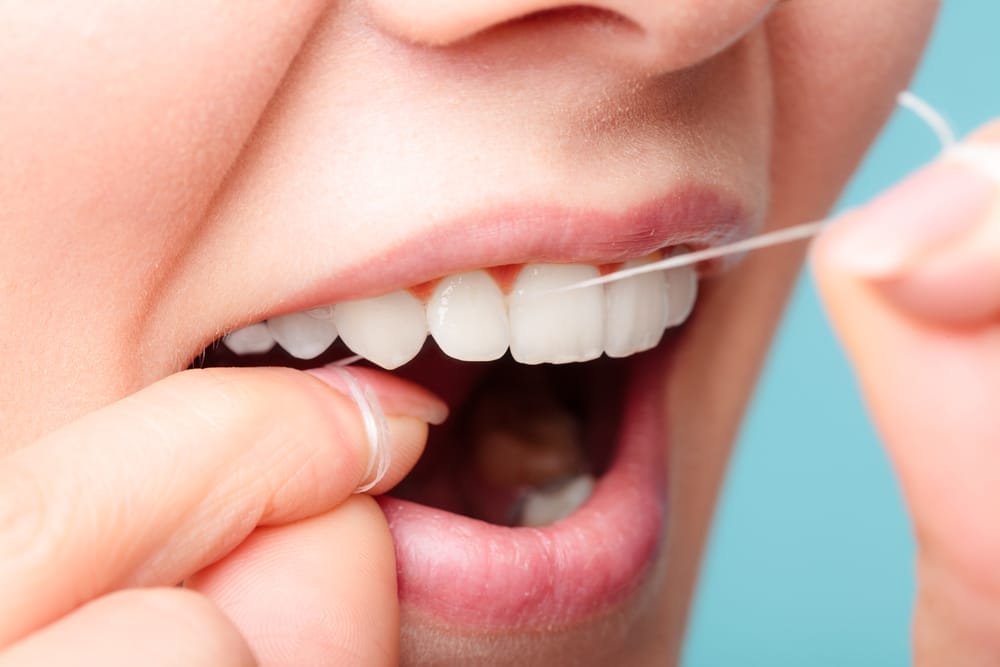Your oral health plays a vital role in your overall physical well-being.
Maintaining good oral hygiene through proper brushing and cleaning between teeth not only keeps your mouth healthy but can benefit other areas of your body as well.
In this post, you will learn about the links between poor oral health and common health problems.

The Connection Between Oral Health and Heart Disease
There is an established link between poor oral health and cardiovascular diseases. When you do not maintain clean teeth or gums, bacteria can form and multiply. This is often what causes bad breath, but that same bacteria can go beyond your mouth, down your throat, and throughout your body. This increases the risk of heart disease in the following ways:
- People with moderate to severe gum disease have a higher risk of heart disease than those with healthy gums. This is because the bacteria that cause gum disease can enter the bloodstream from the mouth.
- Once in the blood, these oral bacteria can cause inflammation that damages blood vessels and elevates risk factors for atherosclerosis, stroke, and even endocarditis – an infection of the inner heart lining.
Proper oral hygiene and managing gum disease are crucial for reducing the prevalence of these harmful oral bacteria in the body. Cleaning your teeth every day will reduce the risk of bacteria forming and spreading, causing potentially fatal damage to vital organs.
It’s not just your heart that’s put at risk
Poor oral health can facilitate harmful bacteria spreading through your body. This can contribute to the following conditions:
- Alzheimer’s- A recent study has highlighted that gum bacteria can facilitate senile plaques found in patients with degenerative brain diseases.
- Pneumonia- If the bacteria present in your mouth enter your lungs, this could trigger an infection, causing bacterial pneumonia.
- Cancer- Poor oral health can increase your risk of developing cancer, particularly oral, throat, and lung cancers among others.
Maintaining proper oral health is vital in the fight against chronic and often life-threatening illnesses. Neglecting your oral health puts more than your smile at risk.
How Bacteria Spreads From the Mouth
The microbes that inhabit our mouths don’t just stay confined there. When left untreated, oral bacteria can enter the bloodstream and spread throughout the body, potentially impacting many organs. Some potential issues include:
- Dental infections spread to cause tension headaches.
- Tooth pain and infections are linked to problems like facial swelling, visual disturbances, and bad breath.
- Chronic and systemic conditions like diabetes are linked to poor oral health.
Establishing Excellent Oral Hygiene Habits
Establishing good habits is crucial in preventing oral disease, and fighting off harmful germs. Here are some things to consider when establishing your oral care routine:
Daily home care routines
To minimize health risks, it’s essential to establish proper daily home oral care routines including:
- Brushing twice daily with fluoride toothpaste to remove plaque and food debris.
- Flossing daily to remove interdental bacteria and debris.
The importance of dental checkups
In addition to daily habits, it’s crucial to:
- Schedule routine cleanings every 6 months with your dental hygienist for a professional cleaning and exam.
- See your dentist immediately if you notice any signs of oral issues like bleeding gums or tooth pain.
Key Takeaways
Adopting comprehensive oral hygiene practices can help reduce risks to overall health by limiting oral bacteria levels.
Diligent home and professional oral care is key for supporting whole-body wellness due to the mouth’s connection to systems that reach vital organs in your body. Prioritizing oral hygiene should be an important part of any health routine.



Leave a Reply